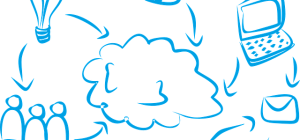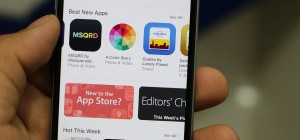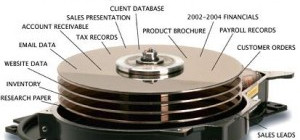 Nowadays privacy is turning into a sophisticated delight. With the spread of payment technologies, Internet banking and other services connected with your money and personal information in the web, dangers waiting for you are significantly increasing.
Nowadays privacy is turning into a sophisticated delight. With the spread of payment technologies, Internet banking and other services connected with your money and personal information in the web, dangers waiting for you are significantly increasing.
Despite numerous antiviruses and anti-malware programs developed every day, hackers find out new ways to rob you from day to day. That’s why it is important to know how to protect oneself from unwanted attention. For setting up your own stronghold on the Internet we recommend reading this article very carefully. Let’s see what you can do to limit the risks.
Forget about activity in social media
Nowadays Facebook, Twitter, and other social media are the first places where bad people go to find information about you. We do not mean that you have to delete yourself from anywhere. Just try not to share the unnecessary information. Pay special attention to shared photos. For example, you have just bought tickets on the cool festival and decided to inform your friends about this event. All modern tickets have got a bar code on them and the code may be seen at your just taken photos. Hackers may use it and steal the tickets.
Think before you sharing personal data
We mean such data as passport, credit card number or social security number. Even if the site requires only four last digits, they may be used, as, for example, a way to reset your password somewhere. In addition, especially cunning people can guess the whole number even with these four digits.
Prepare your hardware
Try to set up as many passwords as possible. The laptop should be locked with the password every time it falls into hibernation mode or turned off. Your cell phone also must contain all possible passwords. In addition, it may be useful to install a special application that locks the device if it is stolen or lost. Make sure that you use only certified and licensed powerful antivirus and antimalware software. You’ll need to check for updates from time to time.
Be more anonymous
Every browser nowadays has got a special anonymity mode that will delete cookies and temporary Internet files. With this mode, it will be more difficult for analytics companies to track your preferences and sites you visit. Apart from browsers, there are IP changing programs, VPN services, and Tor.
Try the password vaults and two-factor identification
There are a lot of programs available for downloading that will keep and complicate your passwords. It is absolutely unwanted to use one password for several services. Two-factor identification is available on the majority of common services and sites now. It means that after logging in the site will require writing a text or digits set that will be sent to your phone or email.
As you can see, these steps are not difficult to perform. However, this is not a full list of needed actions and you may find more on the internet. Remember two last things: try to pay with your cash and try not to install or open every automatically downloaded file.








